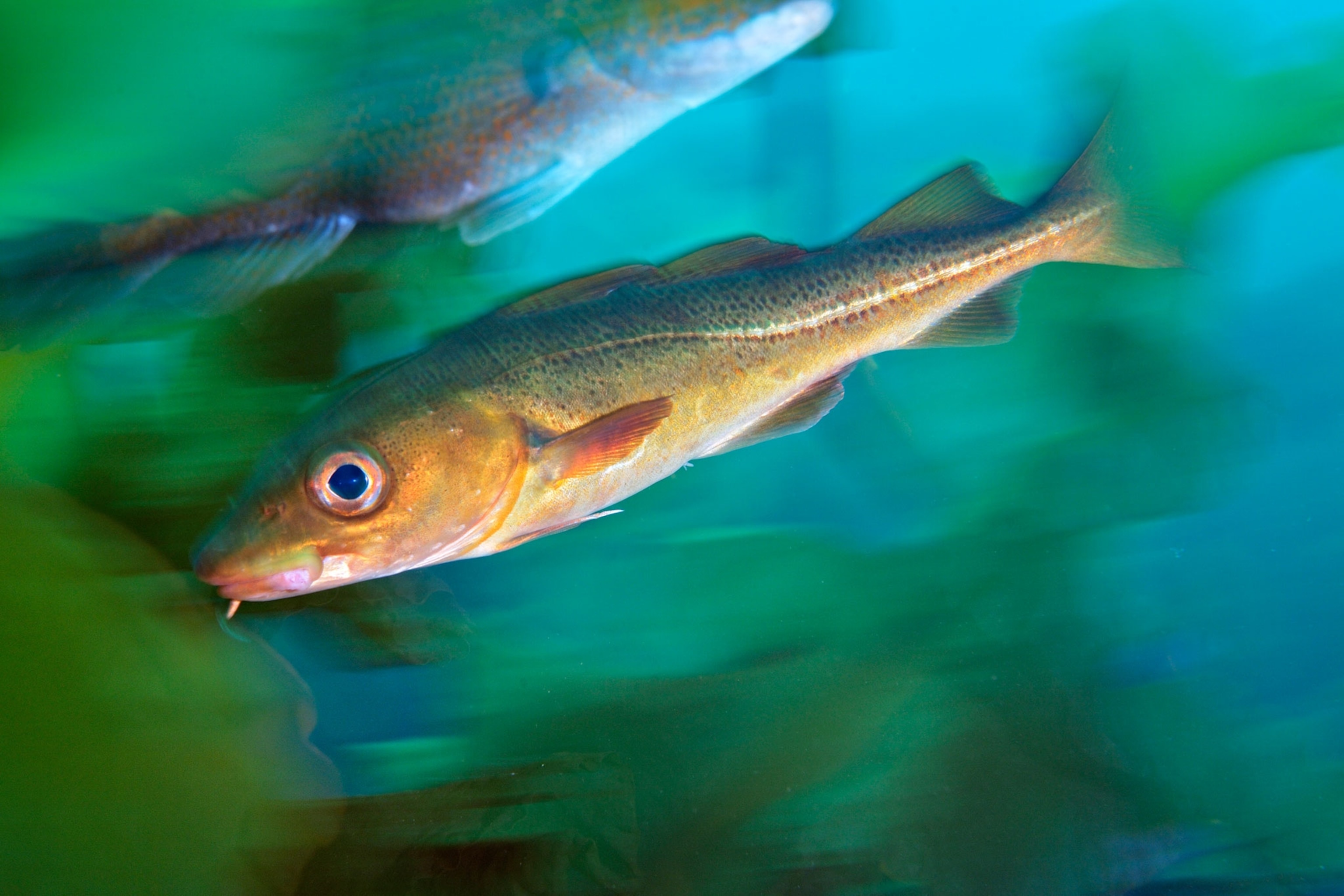
We’re Killing the Oldest Fish in the Sea
Fishing eliminates most of the older fish, a new study finds, and the ecological implications are disturbing—but marine reserves can help.
Humans are killing the oldest fish in the sea, a new study suggests. That is likely altering ocean food webs and making populations of many important species eaten by people less stable and resilient.
In one of the first studies of its kind, a team of fish experts used models and fish-catch data to analyze 63 major fish populations around the United States and Europe, from Atlantic cod and Greenland halibut to rockfish, hake, grouper, and sole. They found significant declines in the oldest fish in nearly 80 percent of the populations. In roughly one-third, the number of older fish had declined by more than 90 percent.
It didn't matter whether the species were long-lived yelloweye rockfish, which can survive more than 100 years; red snapper, which typically reach about 50; or Pacific cod, which rarely live past age 18. Some herring might only live seven years. Yet in most cases, even where fishing is thought to be sustainable, the more senior members of the population—the oldest one-third—were being wiped out.
"It's worrisome," says lead author Lewis Barnett, a postdoctoral researcher with the University of Washington and the National Oceanic and Atmospheric Administration's Northwest Fisheries Science Center. "It's important to have young and old fish because changing environmental conditions might favor one over the other in any given year."
Older fish may eat different things and live in different areas of the ocean from their younger counterparts. Many fish settle as juveniles in kelp or mangrove beds then move offshore. Older fish also tend be better at producing viable offspring—offspring that tend to be larger. Killing too many older fish can make the rest of the population more susceptible to disease, rising temperatures, or pollution, and can put the entire population at greater risk of collapse, researchers suggests.
Just like protecting the oldest trees in an old-growth forest, "biodiversity translates to more stability," Barnett says.
Their Luck Runs Out
The idea that fishing brings more harm to the oldest of a species isn't itself new. But the new research is "one of the first to document how widespread the problem is," says Villy Christensen, a professor at the Institute for the Oceans and Fisheries at the University of British Columbia, who wasn't involved in the study. "We must rebuild fish populations to include healthy proportions of older individuals as a hedge against population crashes."
The authors of the new study, published in the journal Current Biology, only looked at fish populations off the two continents with the best data. But the findings were so consistent they expect results would be similar for important fish off Asia, Africa and South America. And fishing in developing nations is often less regulated. As a result, the authors write, "globally, the magnitude of reduction of old fishes is likely larger than the estimates we present here."
The problem is actually quite simple. Few fishing methods distinguish between young fish and old fish, so most commercial operations wind up hauling in fish of many ages. Over time, all fish are exposed repeatedly to nets or hooks. As they age, fewer and fewer of the older ones escape being caught. They are disproportionately reduced in number.
"I think the pattern is likely to be prevalent any place that has a lot of fishing," says co-author Trevor Branch, a University of Washington fisheries biologist. "The big picture is, if you fish stuff, there are going to be fewer old fish, even if you think you're doing everything right. We're managing them for overall biomass, without realizing we've completely changed their age structure."
For example, he says, Pacific whiting (also called hake), one of the biggest fisheries along the West Coast of the U.S., is considered well-managed. The fish is used in fish sandwiches, frozen fish sticks, omega-3 oils and surimi. Whiting numbers currently are quite high. Yet researchers found that fishing had taken more than 90 percent of the oldest age group.
"If you don't like that," Branch says, "then we have to change the way we manage fisheries."
A Simple Solution
One way is to adopt so-called slot limits—limits on catching fish above a certain size. That would tend to protect older members of a population. But it can also be complex and expensive, both for the industry and regulators. An alternative is to rotate fishing zones season after season, much as farmers rotate crops, to give some areas a chance to recover.
But perhaps the simplest way of protecting old fish is one that has earned more attention in recent years: establish marine reserves. By protecting more areas as no-fishing zones, you assure some portion of the senior age class is never in danger of being caught.
"I'm a firm proponent that some areas should be set aside," Branch says. "To keep old fish, you're going to have to give up some portion of the catch."
But, he adds, that might be the best way to make sure that fish are around to catch for years to come.
"Consider it an insurance policy," he says.




